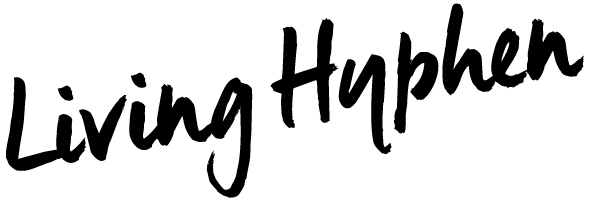At this point, it feels like a lazy cliché to talk about 2020/2021 as a time of “racial reckoning”. But it’s true. The senseless murders of George Floyd, Breonna Taylor, Ahmaud Arbery – among far too many Black people – along with the rise in anti-Asian hatred and the discovery of mass graves of Indigenous children at residential schools all put into sharp focus the profoundly seismic inequities and injustices many racialized communities face every single day.
I was not immune to this “reckoning”. While I was always acutely aware of racism – I am, after all, a racialized woman myself and the steward of a community made up of people from diverse racial backgrounds – there was something undeniably and viscerally different about that time. The back-to-back violence across racial lines made it clearer than ever before our need to act in solidarity against the dangerous system of white supremacy.
Living Hyphen, by nature of our mission to amplify voices that all too often go unheard, has always been political. But it was not until that time that we truly understood the power of our platform and became fiercely unapologetic in our activism. It shifted my work more definitively toward actively practicing anti-racism, anti-oppression, and equity. Since that time, we’ve worked with school boards, government agencies, businesses, non-profits, and other cultural organizations to educate staff and students alike about racial justice issues and how to act in solidarity across socially constructed lines.
Throughout the last few years of doing this work, I’ve noticed that much of the conversation is still centered around whiteness. When mainstream conversations address racism, the discussion is often – as most things always are – centered around white people. So much of our discourse today is still very much trapped in binary thinking – white people against all non-white people.
If I’m being perfectly honest and candid here, I’m tired of educating white people about their privilege and how they – knowingly or unknowingly – oppress, discriminate, and harm racialized people. This educating? This labour to show how they perpetuate the systems their ancestors created? It’s exhausting.
I don’t want to spend all of my energy teaching white people how to be better allies, how to stand in solidarity with racialized communities. That’s been talked about ad nauseam and yet, it still feels like we’re having the most basic 101 conversations.
If there are white folks reading this now, I call on you to do this important work. Allow me to leave it to the real white allies to educate their own peers.
The truth is that these days, I find myself sourcing powerful inspiration and beautiful, creative energy from working with various racialized communities to unpack the ways in which white supremacy has created a separation within ourselves and between us. The ways in which white supremacy has worked to set us apart. The ways in which white supremacy has created differences and division. By picking apart these distances that white supremacy has created between and amongst our communities, we are better able to create and build the bridge(s) we need to close these gaps.
The latest season of the Living Hyphen podcast is dedicated to exploring just that.
This season’s podcast is shaped intentionally to begin inwards and moving outwards. We start with the distances cultivated in our own minds without our even realizing it – internalized racism, sexism, and other -isms. From there we move out a step to the distances found in our relationships with loved ones, and then a step further again to the distances found within and between our communities…to the greater world we occupy as hyphenated Canadians.
Activist and writer Audre Lorde once said, "Revolutionary change is never merely the oppressive situations which we seek to escape, but that piece of the oppressor which is planted deep within each of us."
I have dedicated the last few years to examining, interrogating, and attempting to dismantle that piece of the oppressor within me. This season of the Living Hyphen podcast is an endeavour to capture that messy experience and share the lessons learned along the way. It is, as with all things we do at Living Hyphen, an ongoing work in progress.
Just as we did in our last season, we bring you storytellers from all across what we now know as Canada to share poetry, short stories, and critical but caring conversations. We hope to create an intimate space where we can turn inwards to decolonize our minds, while also working towards actively disrupting these systems of oppression that have been, as Audre Lorde writes, "planted deep within each of us".
I wish we could say that 2020/2021 was the final and defining year of revealing the brutality and harms of oppressive systems, but it seems that was only just the beginning. The past year has been full of violence all across the globe from Palestine to the Congo to Sudan to right here on this very land. Whether it is the resurgence of conflict from old wounds or the continuation of violence that has gone on for generations against Black, Indigenous, and people of colour, our headlines, social media feeds, and conversations are a never-ending stream of traumatic events.
It is my hope that the stories, experiences, and lessons shared by the 25 artists, writers, educators, and activists featured in this season serve as some kind of antidote to this pain. It is my hope that the stories we share in this season offer some pathway to healing.
As always, we share with you an offering and an invitation to greater connection and deeper understanding by way of tender and courageous storytelling.
As Audre Lorde wrote, “There is no simple monolithic solution to racism, to sexism, to homophobia. There is only the conscious focusing within each of my days to move against them, wherever I come up against these particular manifestations of the same disease.”
May we move towards our liberation together.


